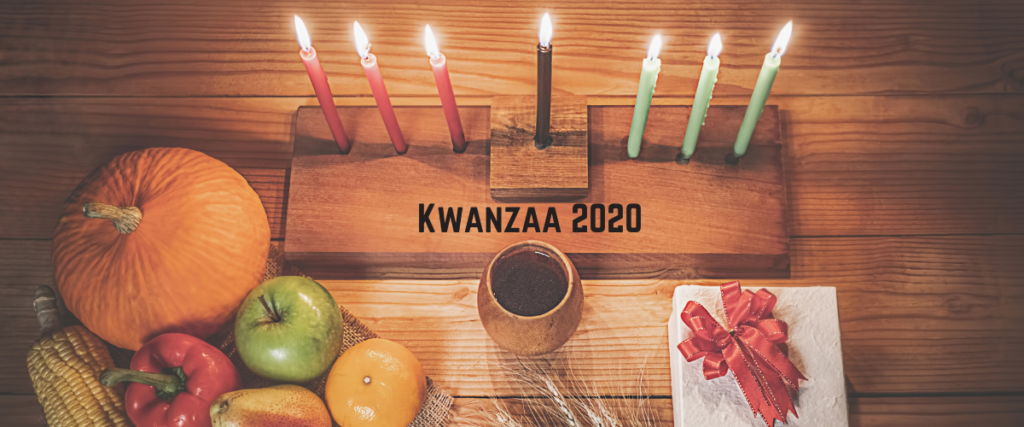
Kwanzaa – A Celebration of Culture and Struggle
Kwanzaa is a cultural holiday celebrated by people of African descent, particularly those in the United States, but also by Africans and members of the African diaspora. This seven-day festival is based on first fruits harvest festivals that are celebrated in many parts of Africa. The holiday was created out of the 1960s freedom struggle of African Americans. Maulana Karenga, the creator of this holiday, believed that culture is an important part of the freedom struggle for it provides the foundation that determines how we interact with each other, define our goals and engage in action.
The creation of Kwanzaa was a very deliberate process which involved extensive study of the philosophy and traditions of many African peoples, consideration of the cultural needs of African Americans, the goals of the movement, and how the celebration would interact with existing December holiday celebrations. While born out of the U.S. struggle, Kwanzaa is deeply rooted in a pan-African ethos. When synthesizing African traditions to create Kwanzaa Karenga was deliberate in choosing elements that were represented in all regions of the continent rather than a particular people or nation.
The Nguzo Saba (Seven Principles) articulate the core philosophy that Karenga developed.
- Umoja (unity): To strive for and maintain unity in the family, community, nation, and race.
- Kujichagulia (self-determination): To define ourselves, name ourselves, create for ourselves, and speak for ourselves.
- Ujima (collective work and responsibility): To build and maintain our community together and make our brother’s and sister’s problems our problems and to solve them together.
- Ujamaa (cooperative economics): To build and maintain our own stores, shops, and other businesses and to profit from them together.
- Nia (purpose): To make our collective vocation the building and development of our community in order to restore our people to their traditional greatness.
- Kuumba (creativity): To do always as much as we can, in the way we can, in order to leave our community more beautiful and beneficial than we inherited it.
- Imani (faith): To believe with all our heart in our people, our parents, our teachers, our leaders, and the righteousness and victory of our struggle.
You can learn more about Kwanzaa during the December 27 worship service when African American members of our congregation and staff will explore the tradition and meaning of Kwanzaa.
Share this post: